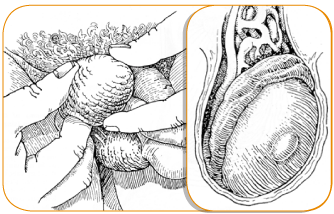QUICK FACT
![]() In 2009, over 180,000 people died from cardiovascular disease (CVD) in the UK - one in three of all deaths.2
In 2009, over 180,000 people died from cardiovascular disease (CVD) in the UK - one in three of all deaths.2
Cigna cookie policy
A "cookie" is a small piece of information which is stored on your browser when you visit a website.
RELATED LINKS
 Guide to men’s health
Guide to men’s health
Introduction
Modern lifestyles and busy schedules often seem to conspire against us when it comes to looking after our health. But there’s good news. More often than not the answer to many of these issues boils down to keeping just a few areas of our lifestyle in check. There are many condition’s that specifically affect men. It’s important that we learn how to prevent illness as well as care for a condition if one does arise. Knowledge of a conditions symptoms, risk factor, preventative approaches and available treatment options all help men make more informed health choices.
Cardiovascular disease
An estimated 17.1 million people a year die of cardiovascular disease particularly heart attacks and strokes1. Physical inactivity and poor diet are typically a key cause. Men tend to be affected earlier in their life than women. Up to the age of 75 they are more likely to die from a cardiovascular disease.
Coronary heart disease
Coronary heart disease (CHD) results from a narrowing or even blockage of the heart’s own arteries. This restricts the blood and oxygen supply to the heart’s muscle tissue.
For more information on coronary heart disease including angina and heart attacks go to the British Heart Foundation’s website www.bhf.org.uk or the Stroke Association www.stroke.org.uk

Fortunately, heart disease is largely preventable through simple achievable lifestyle changes.
Some important ways you can help prevent cardiovascular disease include:
- Stopping smoking.
- Taking 30 minutes of physical exercise at least 5 times a week, such as a brisk walk.
- Eating a healthy, balanced diet including 5 portions of fruit and vegetables a day.
- Maintaining a healthy weight and keeping your body fat levels within healthy limits.
- Not drinking more than the recommended amount of alcohol.
- Checking your blood pressure and cholesterol once a year and treating if necessary.
- Keeping your stress levels under control.
In turn these simple lifestyle changes may also reduce other risk factors such as lung cancer and diabetes.
Healthy body
Body mass
A reliable rule of thumb to see if you’re carrying too much overall weight is to divide your weight (in kilograms) by your height squared (in metres). This is known as your body mass index or BMI.
As an example - if your weight is 80kg and your height 1.76m, your BMI would be 80 divided by (1.76 x 1.76) – or 25.8.
Your aim should be to keep your BMI around or below 25 - or if you’re particularly muscular, a maximum of 27. If your BMI is 30 or more you should really prioritise losing some weight as a health objective.
Abdomen fat
Another factor to be aware of is the amount of fat that you are carrying around your abdomen. This is now known to contribute to your risk of ill health.
You can work out your abdominal fat index (AFI) by dividing your waist size (in cm – taken horizontally at the widest point) by your height (in cm). The aim here is to keep your AFI below 0.5.
Alcohol
It is well known that a drink or two can help you relax and may even do you some good. Drinking in moderation can be part of a healthy lifestyle. But regularly overdoing it can lead to a number of health risks.
Drinking within safe limits is unlikely to do you any harm. Research has even suggested for certain people 1 or 2 units per day may be good for the heart.
You should also avoid alcohol for 48 hours after a “heavy” session to allow the body to recover.
A unit is:
- ½ pint of beer, lager or cider
- 125ml of wine or sherry
- 1 measure of spirit
It’s easy to underestimate the amount you’re drinking. If you think you are drinking too much try having 1 or 2 “alcohol free” days or keep a diary. Track your drinking with the online tool “MyDrinkaware” available from www.drinkaware.co.uk
Prostate health
The two most common prostate problems are: An enlarged prostate - this is the most common prostate problem. Prostate cancer.
Enlarged prostate gland
The prostate is a gland located just below your bladder and surrounds your urethra (the tube for passing urine). Its usual function is to produce a fluid that is mixed with sperm during ejaculation. The gland tends to get bigger with age and this can push on the urethra, interfering with the flow of urine. This condition is called benign prostate hyperplasia (BPH) - it isn’t cancerous.
About half of men over 50 get symptoms of BPH including:
- feeling that you haven’t completely emptied your bladder
- needing to get up several times a night to pass urine
- going frequently during the day
- difficulty in starting to pass urine, a weak stream or dribbling at the end of passing urine.
For some men an enlarged prostate can be just a minor nuisance. For others it can have a significant effect on quality of life. Options for treating BPH include lifestyle changes, medicines to relax the bladder or shrink the prostate and surgery.
Prostate cancer
This is the most common cancer in men in the UK. 37,000 men are diagnosed every year, 3 times the number than 30 years ago4. It is particularly prevalent in those with a strong family history of the disease, such as your father or brother.
The cause of this cancer is not yet fully understood but appears to be associated with a high fat, high meat, and low vegetable diet. A preventative approach suggests eating a lower fat diet and at least 5 portions of fruit and vegetables a day.
Most prostate cancer is slow-growing to start with and may never cause any problems or symptoms in a man’s lifetime. However, some men will have cancer that is more aggressive or ‘high risk’. This will need treatment to help prevent or delay it spreading outside the prostate gland.
Most men with early prostate cancer do not have any urinary symptoms.
Problems with passing urine could also be caused by another health problem, such as diabetes, or by any medicines you are taking, i.e. anti-depressants.
The symptoms of prostate cancer are similar to an enlarged prostate.

Less common symptoms of a prostate problem include:
- Pain when passing urine.
- Pain when ejaculating.
- Blood in the urine or semen.
The choice of treatment depends on many factors, including your age, general health, stage of the cancer and side-effects of the treatment. Prostate cancer is often slow-growing, so in some older men the best treatment may be ‘watchful waiting’ - close monitoring with no treatment. In other men, surgery, radiotherapy or hormone therapy may be considered.
More information can be found on the Prostate Cancer charity website
The testicles
All men should examine their testicles regularly for anything unusual. If you notice any changes such as swelling, lumps or pain in your testes, get advice from your GP.
Testicular cancer is most common in men aged between 20 and 45. It rarely causes pain, but it may cause the scrotum to swell. The most common symptoms are a painless lump or a feeling of heaviness or discomfort. If you think you have these symptoms arrange to see your GP because testicular cancer needs prompt treatment. More information can be found on the Orchid website www.orchid-cancer.org.uk
Testicular self examination
Self examination of the testes is important for early detection of cancer of the testicle, which can be felt as a small lump. The self-examination technique is simple, and should be performed once a month as follows:
When: The best time is straight after a warm bath or shower when the scrotal skin is relaxed and its contents can be felt most easily.
How: Examine each testicle gently with the fingers of both hands by rolling the testicle between the thumb and forefingers (see picture above).
What to look for: Look for a small lump about the size of a pea on the front of the testicle.
What to do: Not all lumps are cancerous, but if you do find one, arrange to see your GP. When diagnosed early, prostate cancer is completely curable.
Well-being
Look after yourself! It is important to stay healthy and stay happy. Below are some tips for looking after your well-being:
- Regular exercise and healthy meals are not just good for physical health but will have a positive effect on your mental health too.
- Do something you love. Write down things that you enjoy in life and plan to do at least one of these per day.
- Look after your social circle. Seek out the company of others who make you laugh and feel good about yourself.
- Manage stress - make the most of the situation.
- Maintain a positive attitude and enjoy challenges.
- Be honest about your feelings. Let people know how you are feeling, good, bad or indifferent!
- Think positive. If things are getting you down, try to think optimistically.
References:
1 http://www.who.int/cardiovascular_diseases/en/
2 http://www.bhf.org.uk/heart-health/statistics/mortality.aspx
3 http://www.prostate-cancer.org.uk/information/prostate-cancer
If you have any concerns please do not hesitate in contacting your GP. There are also various other sources that you can refer to or contact for further help and information.